Whether the photo is a selfie or a Ryan McGinley portrait, how we choose to frame our bodies reveals as much about our interior as it does our exterior. Which is why Caroline Fahey’s photo series, Silver Lining, is important. Proud to describe herself as plus-size, Fahey was inspired to put her body on display after a near-death experience. During her sophomore year at NYU, the Tisch photography major discovered that she had a blood clot in her brain caused by “obesity and birth control.” She used the frightening moment as a catalyst to explore her relationship with her body.
The photos depict Fahey reckoning with the ups and downs we all experience with our bodies: confident one day, insecure the next, putting everything on display, then wishing we could hide ourselves. As Fahey attempts to argue with her candid shots, fatness does not have to be equated with shame or negativity.
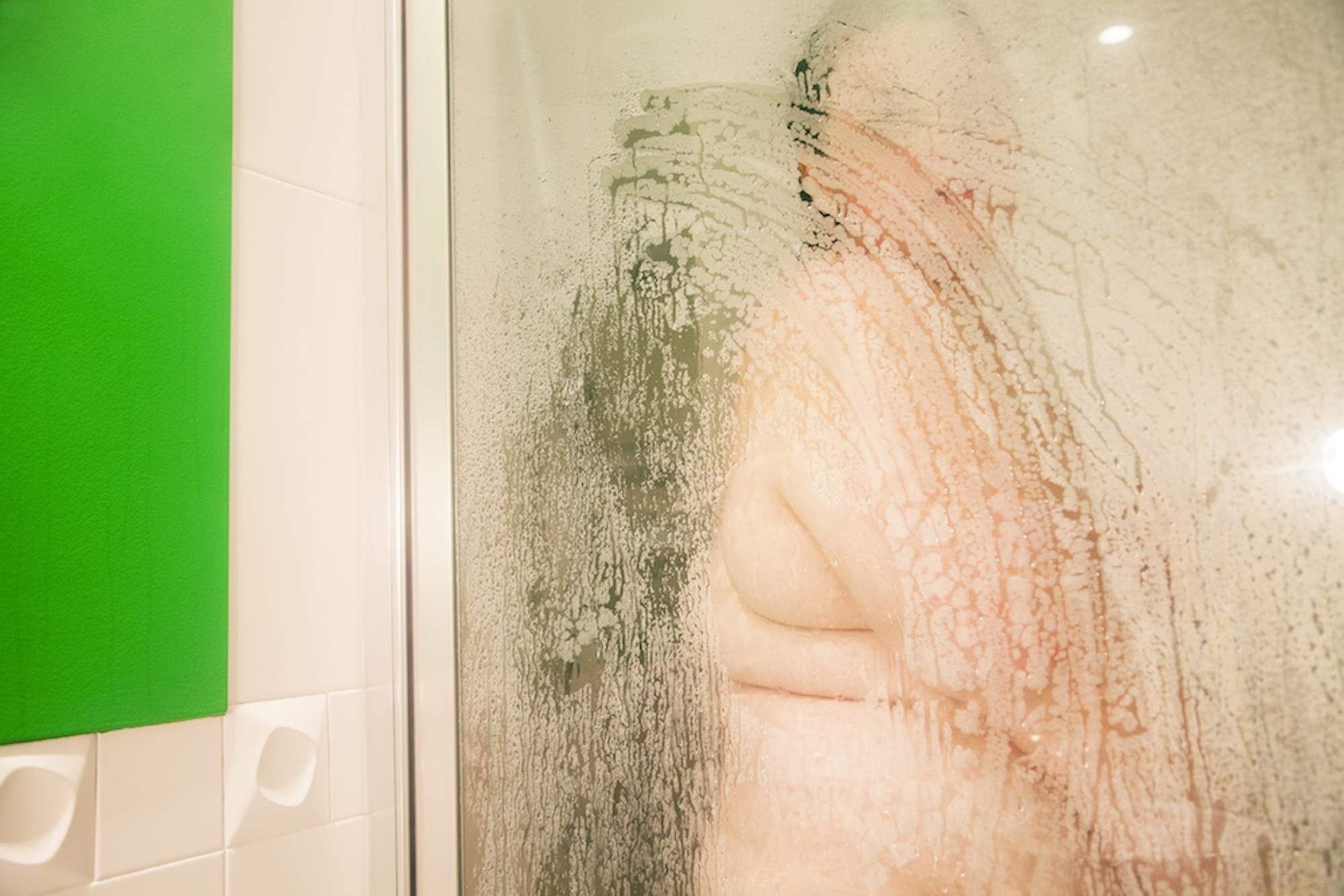
How did you first get into photography?
My freshman year of high school I took my first photography class, in which we made our own pinhole cameras. Mine was made out of a Quaker Oats box. Then I transferred to the public school in my hometown and practically lived in the dark room and art department — seriously, I refused to eat in the cafeteria.
What camera do you shoot with now?
My self-portrait work is shot digitally on a Canon Mark II, most of the time using a wireless cable release. I also shoot a lot of film using my Nikon F100 and Pentax 6×7.
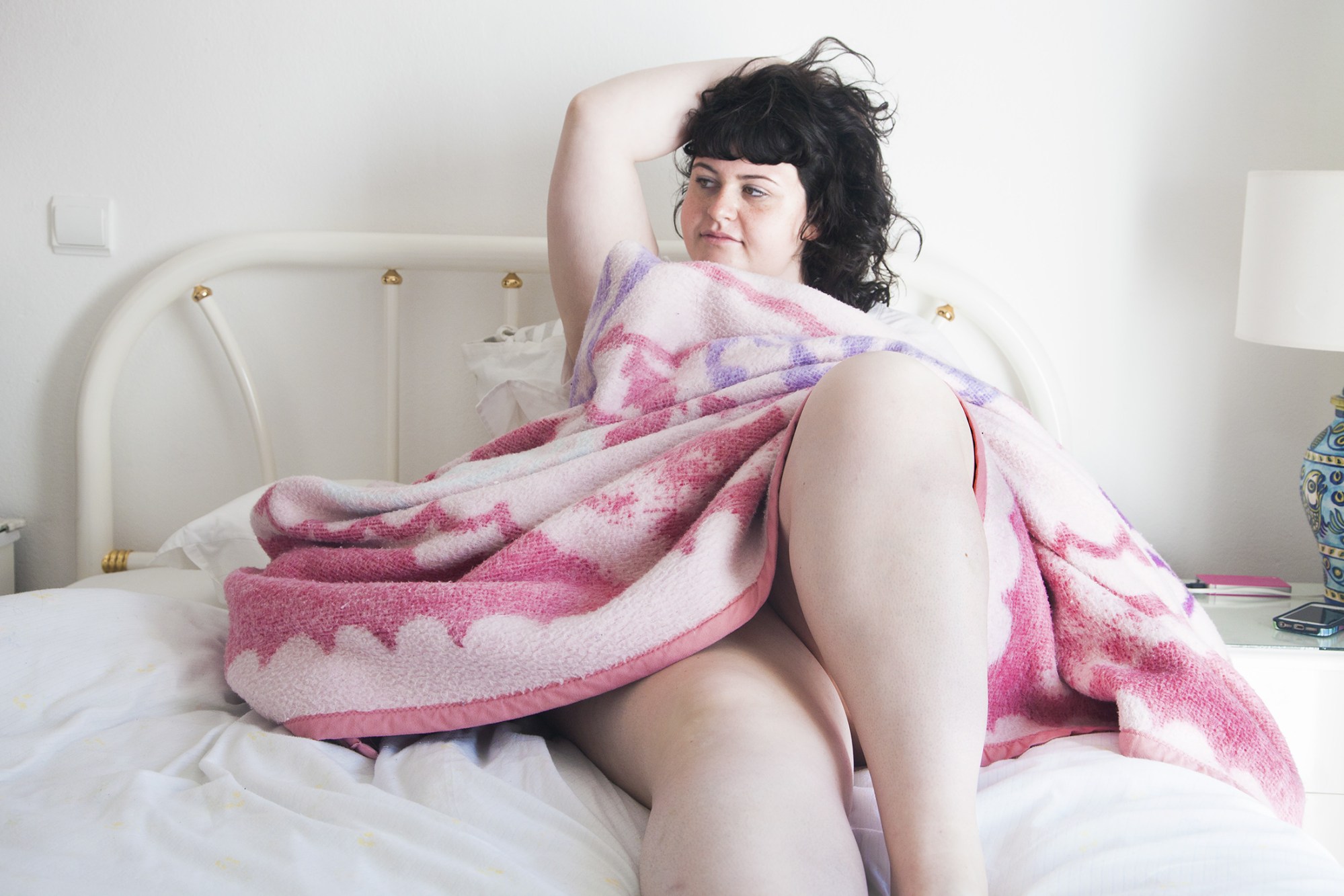
How has your relationship with body positivity changed over time?
Body positivity is complex, even if the concept sounds simple. Loving and embracing your body, while trying to live a healthy lifestyle, is not so easy to do when many people are unconsciously ashamed of you. I say “unconsciously” because, other than online fat shamers, I’ve never had a person say, “I don’t like you because you’re fat” to my face. On the other hand, I’ve had many friends say in my presence: “Ew, I look so fat” or “Why would he date her, she is so fat?” or “Caroline, don’t worry, you’re not fat.” People don’t realize they are shaming bigger bodies when these words come out of their mouths, because fatness has become so negatively engraved into this culture that it often seamlessly translates to “ugly” and “lazy.”
Can you tell me what prompted you to shoot Silver Lining?
In October 2013, during my sophomore year at NYU, I had a blood clot in my brain that was caused by obesity and birth control. During the week I was in the hospital, my mother kept telling me the clot was a “silver lining.” I refused to believe her, because I was in a lot of physical and emotional pain over the next 6 to 8 months. It was incredibly difficult for me to be my optimistic, happy self after learning I was almost responsible for my own death. Almost dying is really scary but it’s even more eye opening. The blood clot was the best thing that ever happened to me. My health needed to become my first priority, and it did. Self-portraiture became a way for me to start learning and educating myself about the relationship I have with my body, health, and well-being. Through that, I learned to love myself and my body, which is my silver lining.
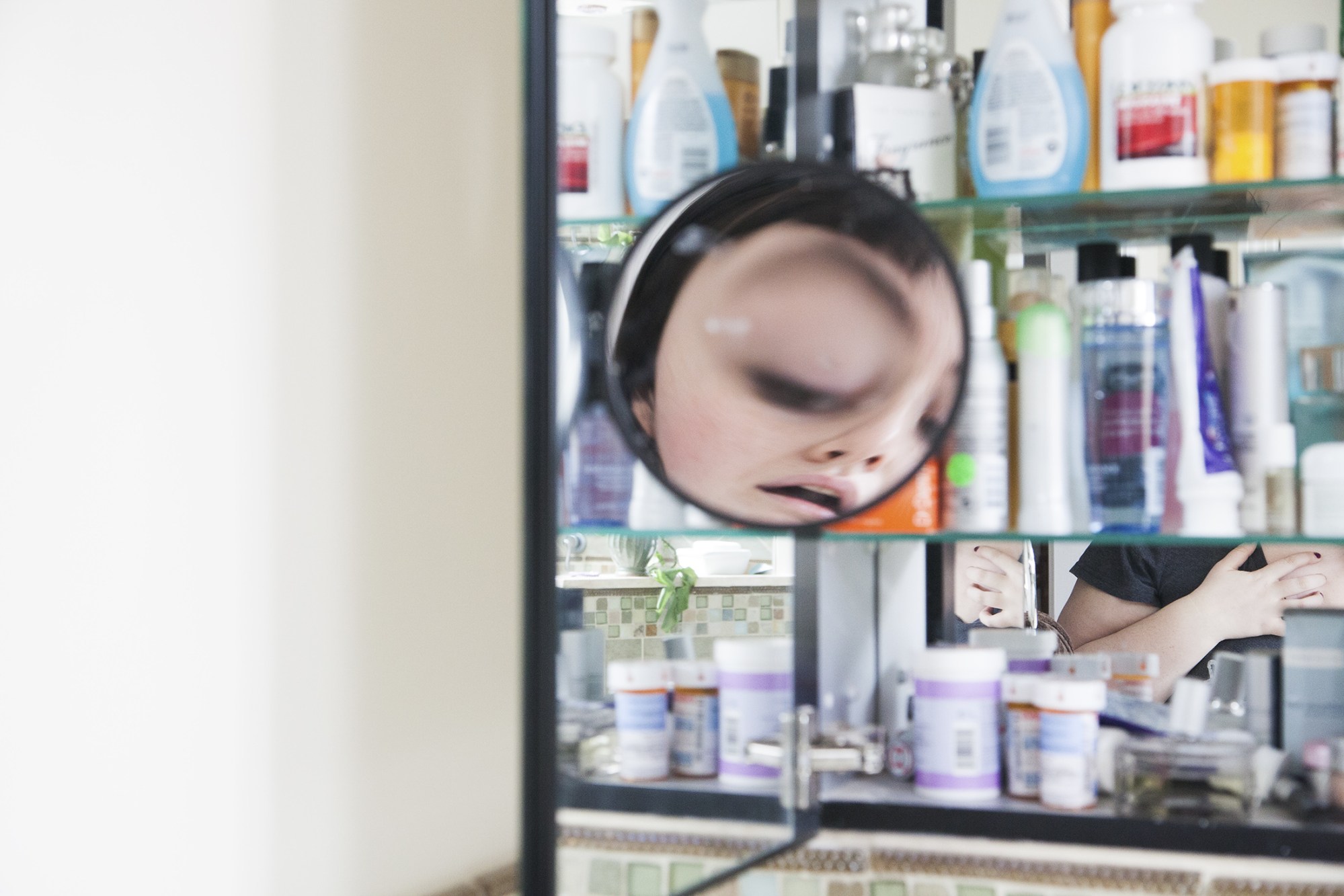
What do you hope people gain from the photos in Silver Lining?
I hope people see my work and are inspired to talk to others about their own bodies and experiences. At the end of the day, I want my 13-year-old sister, Ella, and her friends to grow up feeling confident and beautiful. The more we talk, the more we learn about ourselves and each other.
What challenges against your body type have you come up against?
A few weeks ago I was at a portfolio review, and the first question the reviewer asked me was, “Are you happy with your body?” I answered, “It changes every single day.” Some days I love my big belly, some days I wish it could vanish. I think that is okay and normal, as long as you’re self-aware. My personal relationship to body positivity has grown, and I’ve learned to love myself and body so much more than I used to. A big reason for that is I’ve forced myself to vocalize and have discussions with friends and classmates about my size, which I used to be too shy and ashamed to do. Self-portraiture has been a way for me to visually express a lot of the pain I’ve bottled up my whole life, which has ultimately lead to self-love.
Sharing our bodies can be so intimate. The way we choose to frame them, light them, and crop them says a lot about our inside selves. Did you have any reservations about sharing Silver Lining?
In terms of reservations, I had none, I have none. There would be no point in Silver Lining if there was no one to share these images with. Part of my job is to make people who feel uncomfortable start feeling comfortable. We aren’t used to seeing bodies like mine in this context, and it’s about damn time we do.
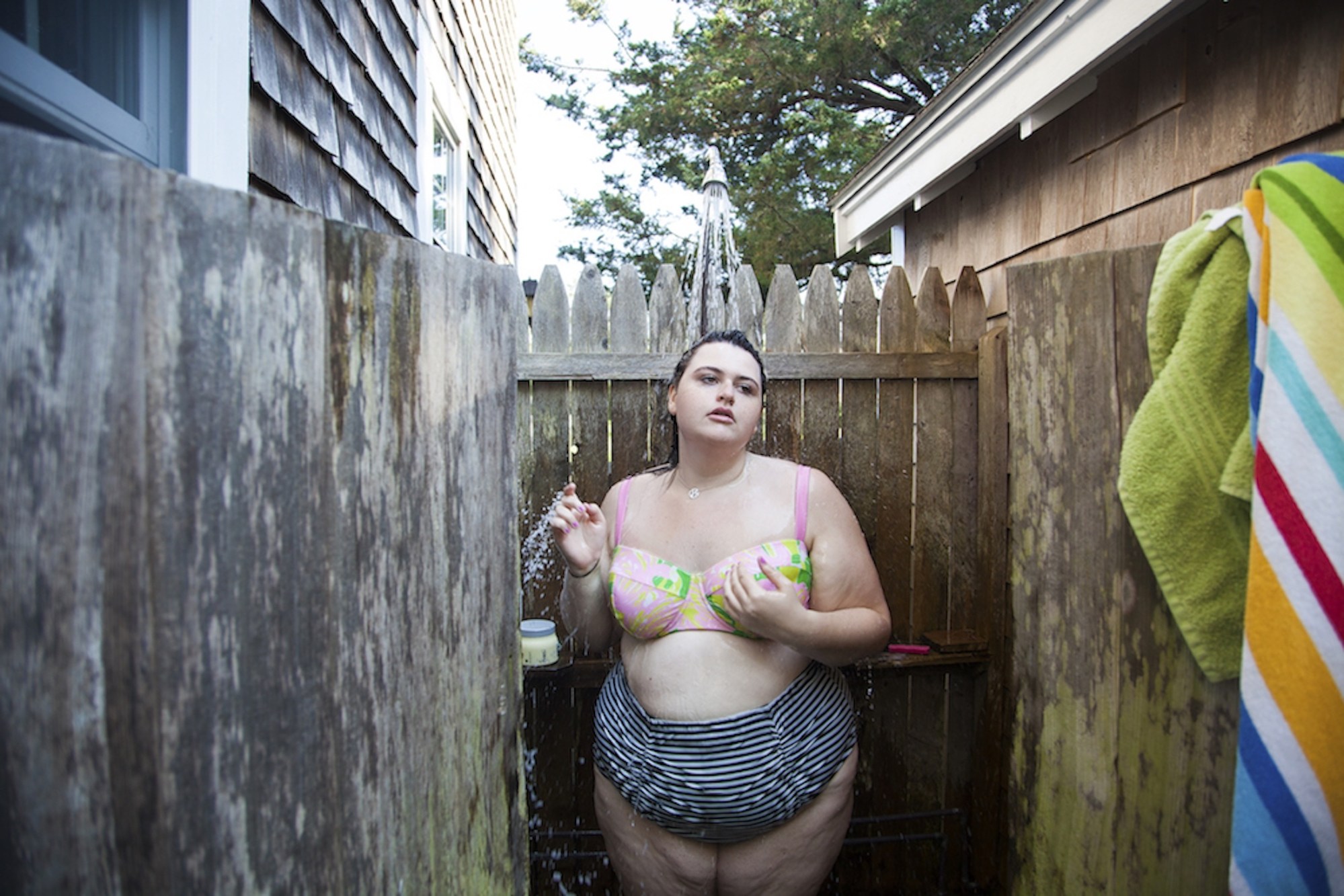
What other subjects do you want to tackle in your work?
I’m in the very early phases of working on a project about binge eating. I’m super excited about it because it’s an issue that needs to be talked about more and that I personally struggle with.
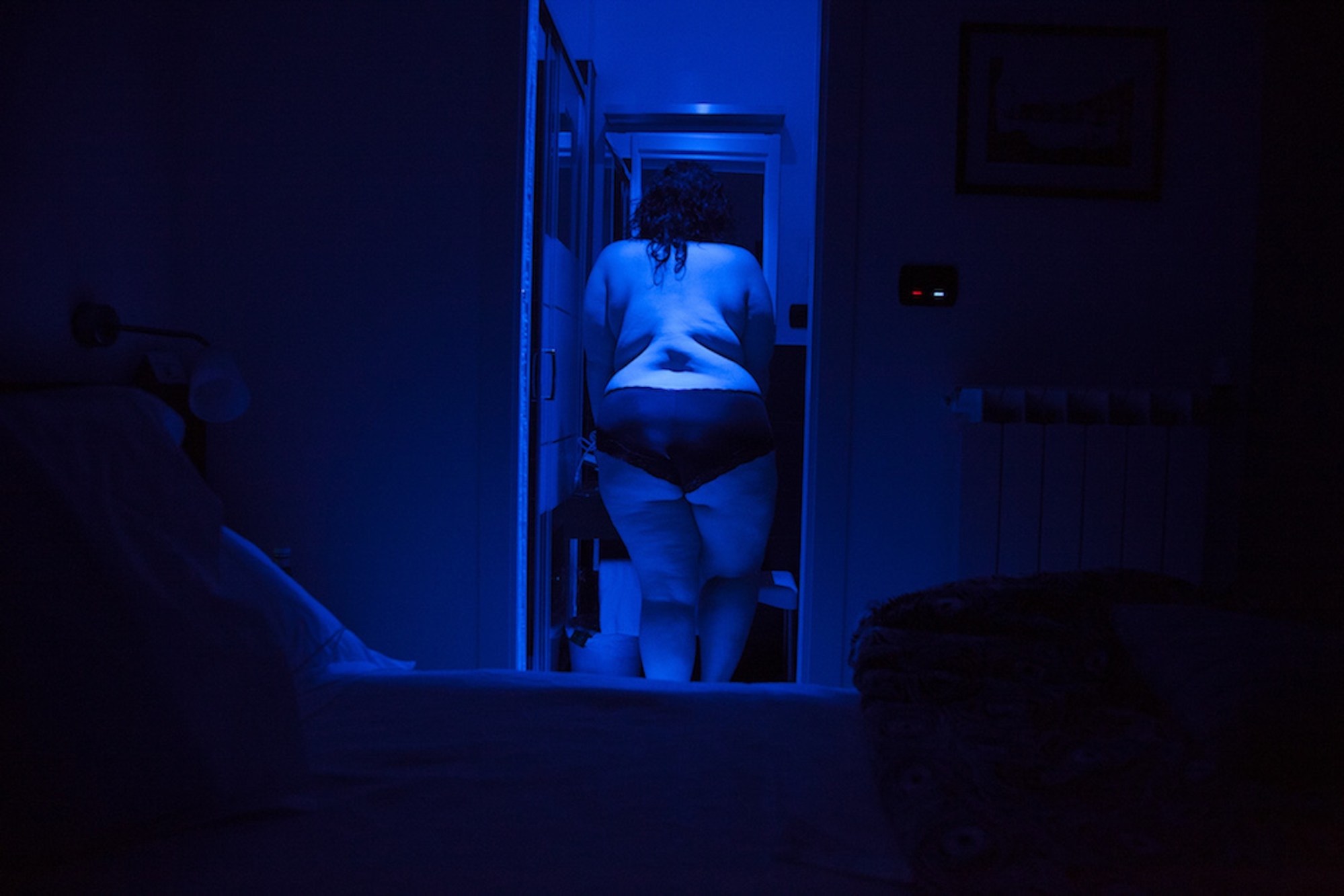
Credits
Text André-Naquian Wheeler
Photography Caroline Fahey
